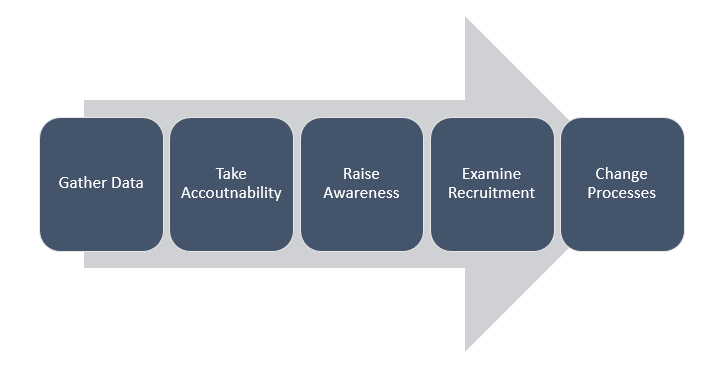I lead a team, what do I need to know?
Inclusion is everyone's responsibility and all of our everyday behaviours should create a more inclusive environment. Particularly as a team leader, supervisor, or line manager you should be aware of your potential to influence others through your own inclusive, supportive and respectful behaviour to ensure this is the norm amongst your team. In addition, you should know about the various policies, advice and support services available.
Therefore it is important that team leaders, supervisors and line managers are aware of the following, and we encourage you to discuss these with your team as part of ongoing conversations at PDRs, team meetings, Away Days etc.
A good leader :
- Ensures that the needs of all people and communities are met in a responsive and respectful way.
- Is aware of own behaviours and cultural values and understands implications of these for making respectful, reflective and reasoned choices.
- Understands the impact of organisational systems, processes and cultures
As a leader and manager, you play a key part in creation and sustinence of our diverse community. There are a number of reources available through AdvanceHE and CIPD on diversifying your workforce. With our changing, emerging markets, customer demographics and attitudes, an increasingly diverse customer base expects better personalization of products and services. Many employers have found that making adaptations to their working practices to accommodate a diverse workforce makes good business sense as well as helping them meet the requirements of equality legislation. It makes their business more attractive to both potential employees and customers and helps them recruit and retain the best people. To intiate this, you may consider the following:
- Gather data: Organisations must gather and monitor the data by setting, then publishing aspirational targets; publishing data to show how they are progressing; doing more to encourage employees to disclose their characteristics. This data must be reviewed periodically and inform directive positive action.
- Take accountability: Senior executives must take accountability by ensuring executive sponsorship for key targets, embedding diversity as a Key Performance Indicator, participating in reverse mentoring schemes to share experience and improve opportunities, being open about how they have achieved success, in particular Chairs, Executives and PVCs in their annual reports.
- Raise awareness: ensure that unconscious bias training is undertaken by all employees. Consider tailoring unconscious bias training to reflect roles – e.g. workshops for executives. You may also consider establishing guaranteeed interview scheemes, inclusive networks and providing mentoring and sponsorship
- Examine recruitment: You must critically examine recruitment processes by challenging non-diverse shortlists, educational selection bias and drafting job specification in a more inclusive way
- Change processes: Responsible teams must change processes to encourage greater diversity by being transparent and fair in reward and recognition, improving supply chains and partners and being open about how the career pathway works.
There are further learnings that we can engage with from the 2017 McGregor-Smith review.
Understand how staff can check and update their details in Trent, including updating their gender identity and sex. See Updating your personal information.
Encouraging your team to keep their information up-to-date is important to as it helps the University understand who staff really are. This information informs priorities, initiatives, and support to meet staff needs and improve the quality of everyone's working life.
Which of your staff have completed their mandatory training and which haven't? All staff, new and established staff, must complete mandatory Equality and Diversity training, and team leaders are responsible for ensuring that every member of their team has completed it.
As of 1st September 2019, all online mandatory training will only be reported through the MI Hub (Trent records will not be updated).
Managers and individuals can monitor their team or individual mandatory training compliance via the MI Hub.
Further details about this can be found on the HR page of the MI Hub http://www.exeter.ac.uk/staff/mi/people/hr/ or you can access the training page of the HR My Team report directly by using this link (click here)
- If you or a member of your team are writing or reviewing a policy or procedure an Equality Analysis will need to be completed to consider equality issues and mitigate against possible discrimination. Find out more on the Equality Impact Assessment pages
- Learn what unconscious bias is and how it could affect your judgements, for example during recruitment.
When dealing with an issue of inappropriate or discriminatory behaviour, it is key that this is challenges in a safe way. The EDI team are always happy to help and you may consider the following as well:
- Know where to access University policies and guidance such as Maternity Leave and Adoption Leave guidance, how to access Mediation, best practice around supporting Lesbian Gay Bisexual or Trans gender staff, and the Equality and Diversity Policy (useful to include on grant applications etc). See Policies and Expert advice from our partners
- Show your staff, potential recruits and customers that you are serious about fairness and helps them understand what behaviours you expect and what is not acceptable and what they can expect of you
- Encourage peers and direct reports to report any inappropriate/discriminatory behaviour through the Speak Out tool.
- For further advice please contact your HR Business Partner or HR Advisor.

